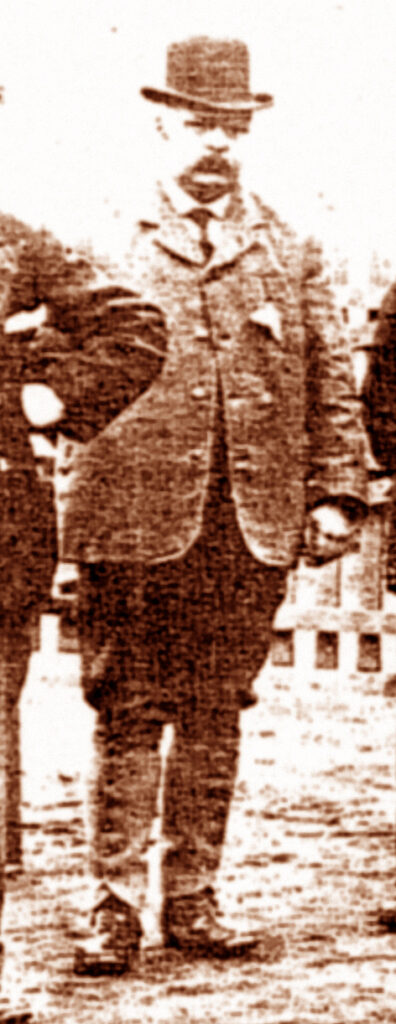Captain John
The Meliden Mine Captain
Mr Edward Parry, the Assistant Overseer of the Poor introduces you to the most important man in the Meliden—Captain John Lean.
‘The mine keeps most people of Meliden and the surrounding villages in work and the man who has recently taken over the management of the mine is Mr John Lean who is always known by his honorary title of Captain Lean or just Captain John to his friends and equals. The Lean family of Cornwall are celebrated the world over for their knowledge and experience of the steam pumps needed for deep mining. He is responsible to the shareholders of the company for every aspect of running the mine which ends at the monthly sale of ore in Holywell. Times are bad, prices are low in face of foreign competition and so all hopes rest on the new Captain who was brought in just a two months ago to help save the biggest and oldest lead mine in Wales.
‘Captain John was born in Devon in 1843 and came north in the early 1860s when his father became Captain of Trelogan lead mine. In 1863, when only 20, he succeeded his father as Captain of the mine and a year later he married Trelogan’s Annie Paterson, which was considered shocking at the time. Her grandfather was Lieutenant-General Sir William Paterson, K.C.H., whose family were founders of the Bank of England. Miss Annie’s father was immediately disowned and disinherited for allowing his daughter to disgrace the family by marrying beneath herself.
‘Captain John was well liked and remained at Trelogan for five years, during which time his wife gave birth to their first daughter, Alice. He was ambitious and in 1868 he left Trelogan to become manager at the recently opened Penyclun Mine near Llanidloes where he was promoted to the position of Chief Agent in 1870 and where he remained until 1871. Then he worked for a time at Lenverly in Shropshire, where in 1873, Annie, his second daughter, was born. His father died in 1872 and was buried at Llanasa where the inscription on his gravestone reads ‘Captain John Lean Late of Cornwall.’ His mother continued to live just outside Trelogan at Perthymaen Farm [now called Berth y Maen], on the Mostyn road and that may be the reason he returned north in 1873 to become the agent at the North Hendre mine near Rhydymwyn (Ford of the Ore). In November 1875, whilst living at North Hendre (North Winter Dwelling), their third daughter, Matilda was born. It was a good year for John Lean because he was also offered the captaincy of Talargoch where he took up his new appointment in March this year. He lives at Cefn y Gwyrch in a big company house called Buarth Isaf which has about three acres, out-buildings and an orchard. His hobby is breeding hens. [When the mine closed, the company put the house up for auction so John Lean bought it for £370 and renamed it Brookdale.]
‘So far, he is well thought of in Meliden because although there are sub-agents, he always takes the trouble to strike the bargains with the men and unlike previous captains, shows no favouritism. It goes without saying that men of such high status usually ignore their men on the street but he is different and already, in a short time, Captain John knows all his workers, their wives and even their children by name. You will certainly know him when you see him because he always wears his Sunday best—a three-piece suit, a neat little bowler and and elaborate chain with a silver hunter and snuff box tucked into his waistcoat pockets. We heard stories that the captains of the big Cornish mines always wore white hats and coats to go underground but so far we have been disappointed—he just wears his usual Sunday best! I wonder how long it will be before the men discover his secret—a Cornishman who speaks perfect Welsh!
‘When we chanced to meet a couple of days ago after church, he told me that there was something he thought I should know. The mining company are going to make economies and the men will have to work eight-hour shifts instead of the customary six hours. He has been instructed not to say anything—nothing will be said until the end of September and he thinks that there will be trouble when the new rules are introduced. The owners realise that the miners’ vegetable patches will be unproductive during the winter and they are confident the men will not dare to strike. We both know that they are mistaken.’

